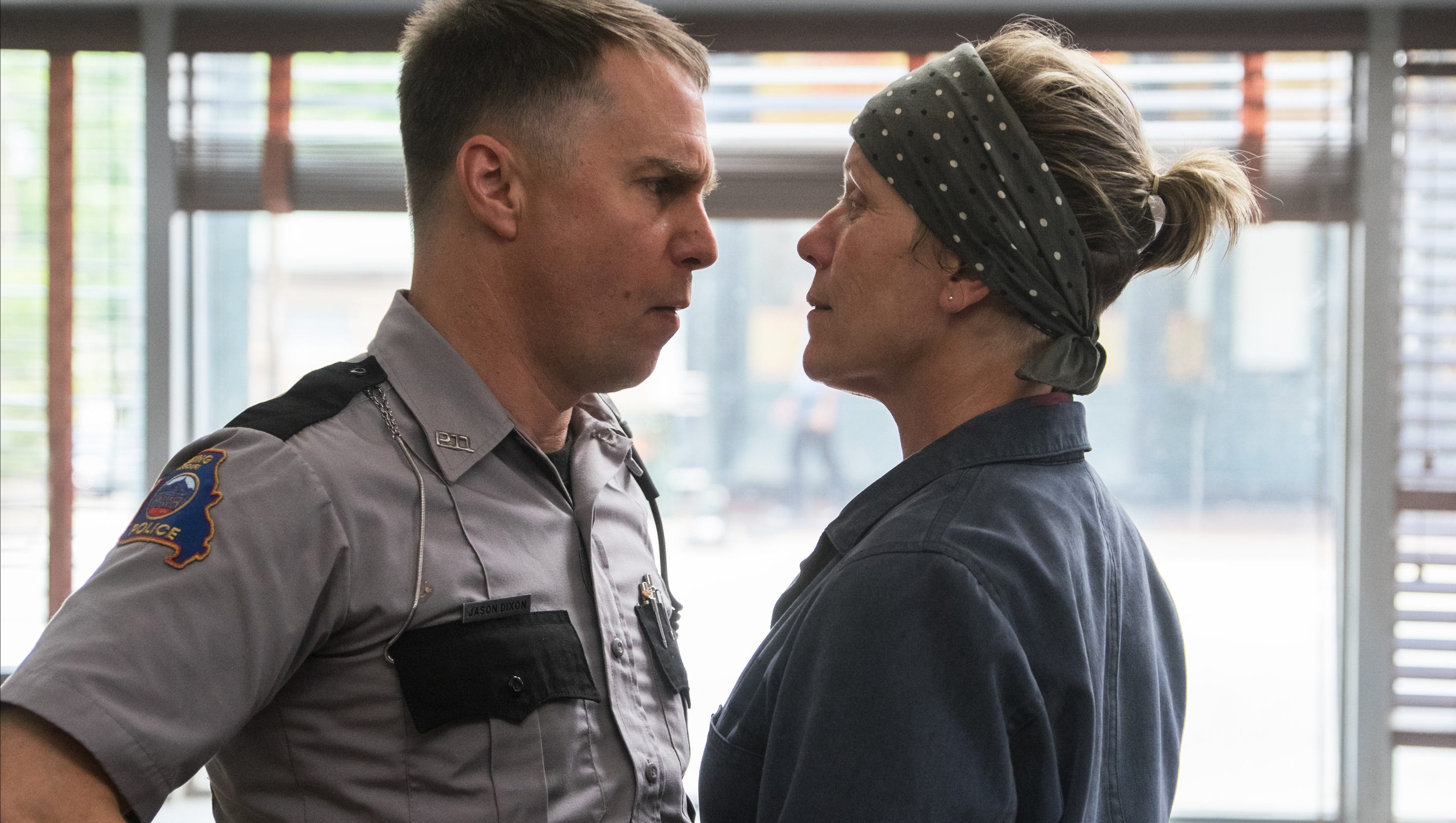Major Oscar contenders are not unfamiliar with backlash. Anything hyped up that much is inevitably going to inspire some pushback. However, recently these pushbacks have been more politically charged. La La Land received much criticism for a lack of black characters despite prominently featuring jazz music (although, as a privileged white man, the fact that the film wasn't actually that great bothered me more). Now, Three Billboards Outside Ebbing, Missouri - the latest film from In Bruges and Seven Psychopaths director Martin McDonagh - has been nominated for the Best Picture Oscar and is already receiving several think pieces regarding its allegedly thorny racial politics.
Of course, we're living in divisive times. It's becoming increasingly difficult to see anyone who disagrees with you as anything more than a political enemy and increasingly easy to label them libtards/Nazis and punch them in the face. We're constantly seeing cries for nuance from both sides of the political spectrum, yet neither side ever lives up to it. I’ve also found myself involuntarily rolling my eyes every time an artist makes something 'political’, knowing it will likely be a generic list of talking points rather than anything meaningful. Three Billboards, however, is not like that, which is certainly why it’s been controversial. It’s also why it’s so significant.
The first thing you'll notice about Three Billboards is how funny it is. It has a smart, biting sense of humour that - as well as being utterly hysterical - appears particularly striking against the rest of the film. The subject matter of Three Billboards is extremely grim and the tone regularly reflects that. As a result, the comedy provides an invaluable catharsis that ensures the film remains enjoyable. However, it never undermines the sincerity. The difficult emotional moments lose none of their impact because the jokes only relieve the tension after the audience has been fully subjected to it. McDonagh has struck a masterful balance between the serious and the humorous that every film should strive for.
Three Billboards manages this because it is so ingeniously constructed. The script is a masterclass in nuance and precision, utilising every line to develop gripping characters and weave scenes of overwhelming emotional potency. The film's turbulent Midwestern setting and remarkably talented ensemble cast bolster this. Woody Harrelson delivers an assured and tragic performance as the town's dying police chief, Lucas Hedges is subtly brilliant as the protagonist’s son and Peter Dinklage is wonderful in a hilarious yet surprisingly thoughtful role. However, it's Frances McDormand and Sam Rockwell who steal the show, flawlessly conveying two characters torn apart by anger and bitterness, enduring drastic challenges to their worldviews whilst developing a grippingly complex relationship. The two have been nominated for Best Actress and Best Supporting Actor at this year's Oscars and they thoroughly deserve to win.
This is also where the controversy lies. Rockwell plays Jason Dixon, a policeman with a shady reputation for his treatment of minorities. He's a racist, but he's not an antagonist. Rather, the audience is expected to empathise with him, but there's a crucial distinction others have failed to make. We don't empathise with his racism, we empathise with the human being beyond it. Dixon’s racism is a central character flaw that is rigorously challenged without dehumanising him into a one-dimensional villain. Throughout the film, he's struggling awkwardly to improve himself and he only succeeds when other characters engage with him. This is why Three Billboards is so relevant. In a world where people are too busy writing smarmy retorts to Twitter trolls and punching Nazis, this call for empathy and understanding may be controversial, but it's vital that it's heard.
Three Billboards Outside Ebbing, Missouri is incredible. I'm yet to see all the Best Picture contenders, but they'll have to be stupendously good if I'm rooting for anything other than this film. Martin McDonagh could have easily made another cynical dark comedy, but he’s embraced heartfelt sincerity with equal measure, broadcasting a timely message with hilarious and heartbreaking resonance.
9.8/10


Comments
Post a Comment